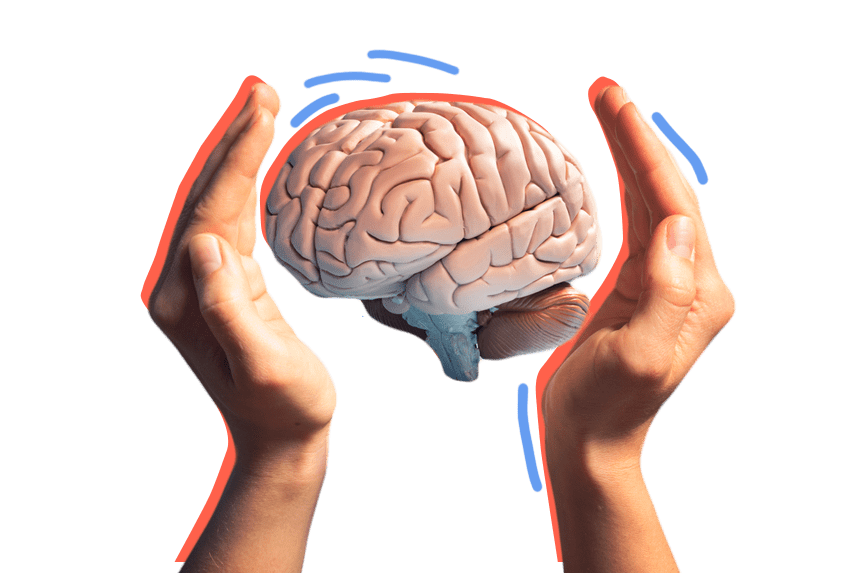Our vision
A Victoria where all young people are healthy, connected, safe and secure.
Young people are respected and central in decision making.
Young people have inclusive and accessible support to achieve their goals and feel optimistic, motivated and inspired about their future.
Our design principles
Design principles help to express what we aim to achieve and directly inform how we will deliver this strategy.
Moving beyond giving voice
It is time to start inviting young people into rooms where decisions are made. Their lived experience means they have unique knowledge and skills, enabling meaningful contributions that can help influence decisions.
Giving young people a seat at the decision-making table
In 2019, YMCA set up a Youth Affairs Subcommittee attached to its board. The subcommittee has six members, including two who also sit on the YMCA Board. It oversees strategy for youth services and young staff and volunteer engagement and manages the youth services budget. The subcommittee ensures young people are involved in decision making at the highest level of the organisation.
Taking a strengths-based approach
While we need to acknowledge challenges and issues, let’s also start highlighting young people’s strengths. This approach builds on what is within their control and develops their confidence and skills. The right support helps young people tackle life’s challenges1.
Building government’s capacity to involve young people in decision making
The Young Voices project in the Department of Families, Fairness and Housing is creating resources to help government meaningfully involve children and young people with lived experience of its services in the design, rollout and evaluation of policies, programs and services.
The project guides how to plan and run youth participation sessions that are safe and enjoyable for young people and also coordinates a platform for staff to improve their skills and understanding of working with young people. As Young Voices continues to develop, it will be shared with community services organisations to support youth participation across the community.
Understanding a young person’s development
Significant changes and transition points shape every young person’s identity. Young people are developing physically, building new relationships, learning new skills and moving towards independence.
Recognising the ages before and after 12 to 25 are just as important…
Childhood and early adolescence are important in setting up a young person for positive experiences during their youth. The families and communities that young people are born into are strong influences and key enablers to successfully moving into early adolescence and beyond the age of 25.
Socioeconomic disadvantage such as poverty, a lack of access to supports, and other experiences including discrimination can restrict the opportunities available to young people. As a result, they may be unable to achieve their goals and actively participate in social, economic and civic life.
Focusing on prevention first
Focusing on prevention can reduce the barriers in a young person’s life and strengthen their families and communities. Prevention can stop problems from occurring in the first place. It can foster strengths and skills that help young people thrive2.
The importance of place and culture
Place-based approaches build on the unique strengths of local communities. They provide greater opportunities to recognise and celebrate the cultural, historical, social, religious and economic relevance of specific locations or areas.
Young people finding solutions to local issues
Banyule Voice is a platform for young people to share issues with the Banyule Council. At the Banyule Youth Summit, young people discuss priorities and recommendations for action. Following the summit, action groups design and deliver solutions. Examples include:
- the Banyule Youth Climate Action Grant
- the ‘Made Australia Home’ campaign promoting the positive contributions of young refugees in the community
- ‘IN/VISIBLE’–an online art exhibition celebrating young LGBTIQ+ people.
A year after the summit, young people invite the wider community to a public event to hear and celebrate their achievements.
Centring diversity, inclusion and accessibility
We can increase young people’s sense of wellbeing and belonging through:
- addressing power imbalances in their lives
- recognising their complex lived experience and how it shapes who they are
- providing services that are culturally safe and more local opportunities to celebrate culture
- empowering them within their own identity.
Our priorities
This strategy recognises that all issues that matter to Victoria matter to young people. In recent years, the Victorian Government has invested around $8.6 billion3 to improve young people’s outcomes4. While we have set out six priorities, this strategy will:
- build on and strengthen existing work
- better coordinate efforts to improve what we achieve
- set out new ways of engaging and supporting young people.
References
[1] Hammond & Zimmerman 2012
[2] Teager et al. 2019
[3] Estimate includes direct investment in young people committed by the Victorian Government from 2014–15 to 2020–21, including future funding.
[4] KPMG 2021
Updated
